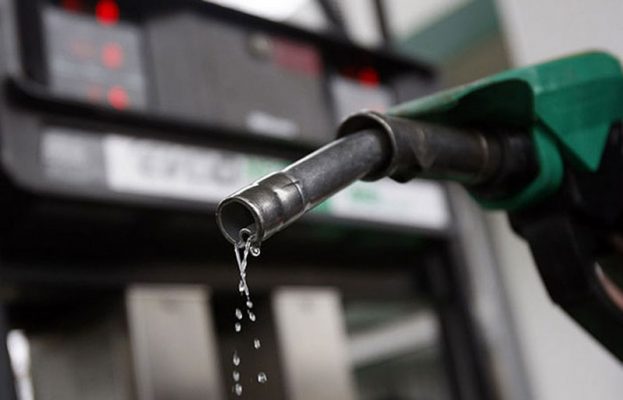The price of petrol in Nigeria could soon drop to around ₦800 per litre, thanks to a combination of falling global oil prices and a renewed government initiative aimed at supporting local refining with crude-for-naira agreements.
This forecast, shared by market insiders on Wednesday, follows fresh price adjustments by the Dangote Petroleum Refinery—Nigeria’s largest private refinery—which again cut its ex-depot price for Premium Motor Spirit (PMS), commonly known as petrol, down to ₦835 per litre. It’s the second reduction in less than a week and the third within the last six weeks.
Documents and statements confirmed the new pricing, with sources indicating the potential for further reductions if Brent crude prices continue their downward slide—now hovering around $65 per barrel. Industry analysts suggest that should crude fall to $50, and exchange rate pressures ease, petrol might retail even lower.

Dangote’s latest price drop, confirmed by a pro forma invoice and supported by industry regulators, represents a ₦30 reduction from the previous depot rate of ₦865. The Group’s spokesperson, Anthony Chiejina, said the move is aimed at easing the financial burden on consumers while stabilising local supply chains.
The refinery also revealed that its fuel distribution partners—including MRS, AP (Ardova), Heyden, Optima Energy, Hyde, and Tecno Oil—will adjust retail prices accordingly, with rates now ranging between ₦890 and ₦920 per litre across different regions of the country.
In Lagos and parts of the South-West, prices have dropped to ₦900, while in northern and southeastern regions, retail rates hover around ₦910 to ₦920. The company expects these adjustments to create ripple effects across the economy, offering some relief to businesses and households amid ongoing inflation.
Meanwhile, importers are grappling with narrowing profit margins as the cost of bringing petrol into Nigeria continues to decline. Recent data from port authorities and trade groups show that between April 8 and 16, a total of 117,000 metric tonnes of petrol—equivalent to over 156 million litres—were brought in through key ports in Lagos and Calabar.
The average landing cost of imported petrol fell to about ₦853 per litre this week, compared to ₦856.75 last Monday, signaling a trend that may reshape the dynamics between local refiners and fuel importers.
One critical factor in the current price direction is the reinstatement of the government’s naira-for-crude exchange with domestic refiners, a policy that had previously been paused. According to the Ministry of Finance, this approach is part of a broader effort to boost local refining, ease demand for foreign currency, and ensure long-term market stability.
“The idea is to cut reliance on dollar-denominated fuel imports,” explained Chinedu Ukadike, spokesperson for the Independent Petroleum Marketers Association of Nigeria (IPMAN). He added that while the price cuts are welcome, they also mean that marketers must absorb more risk, especially when sitting on older, more expensive fuel stocks.
Experts like energy economist Olatide Jeremiah argue that without the earlier policy pause, the country might already be seeing pump prices closer to ₦700 per litre. He described the current environment as a “competitive squeeze,” with local producers undercutting importers in a bid to dominate market share.
Still, not everyone sees the trend as sustainable. Dr. Billy Gillis-Harry, who leads the Petroleum Products Retail Outlets Owners Association of Nigeria, warned that inconsistent price shifts could create volatility in the sector, complicating planning and long-term investment for retailers.
Despite the differing opinions, one thing is clear: Nigeria’s fuel market is entering a new phase of uncertainty—and opportunity. With global oil prices in flux and domestic refining gaining momentum, the weeks ahead could bring more surprises at the pump.



